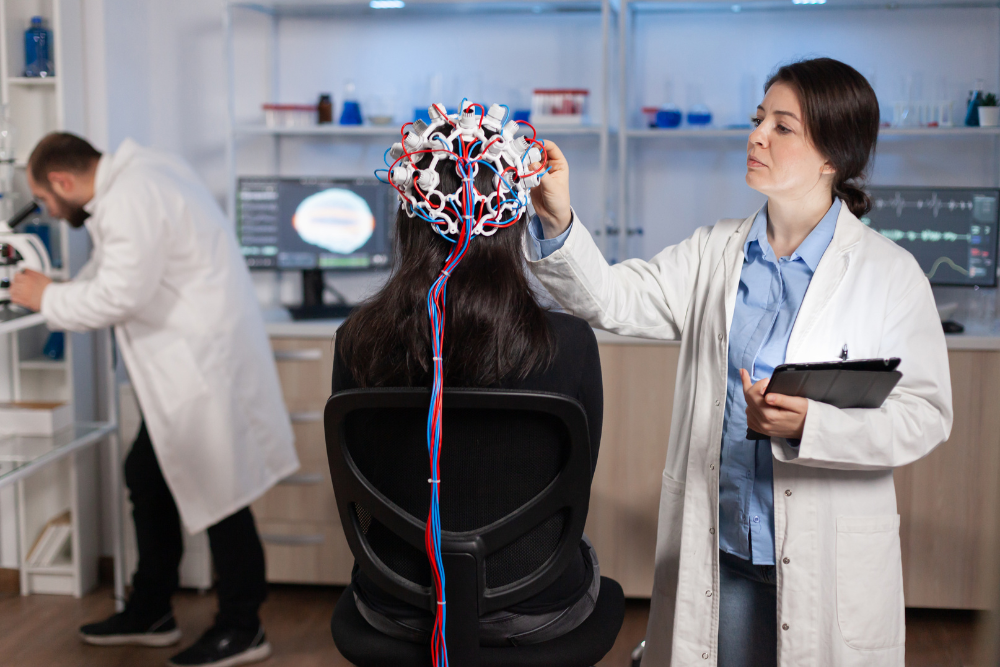Overview
Welcome to our ENT care page, where we focus on providing comprehensive healthcare for your ears, nose, and throat. Our team of experienced specialists is dedicated to addressing a wide range of conditions affecting these vital sensory organs.
Common Conditions Under ENT Speciality
- Hearing Loss: From age-related hearing loss to issues like otitis media, we offer diagnostics and treatments tailored to your specific needs.
- Sinus Infections: Chronic sinusitis, nasal polyps, and allergic rhinitis are effectively managed through our expert ENT care.
- Throat Disorders: Conditions like tonsillitis, voice disorders, and throat cancer are diagnosed and treated with precision and care.
- Balance Disorders: Disorders affecting the inner ear, such as vertigo and Meniere's disease, are thoroughly evaluated for accurate diagnosis and personalized management.
- Snoring and Sleep Apnea: Sleep-disordered breathing, including snoring and sleep apnea, is addressed through a multidisciplinary approach for better sleep quality.
Common Treatment and Care Approaches
- Audiological Testing: State-of-the-art audiological assessments help identify hearing issues and guide appropriate interventions.
- Endoscopic Procedures: Minimally invasive endoscopic techniques are employed for precise diagnostics and targeted treatments.
- Allergy Management: Comprehensive allergy assessments and management plans are designed to alleviate nasal and respiratory symptoms.
- Voice Therapy: For individuals with voice disorders, our expert speech therapists offer tailored voice therapy programs.
- Surgical Interventions: When necessary, our skilled surgeons perform ENT surgeries, ranging from tonsillectomies to complex sinus surgeries.
When to Consult a Doctor ?
If you experience:
- Persistent hearing loss or ear pain
- Chronic sinus issues, nasal congestion, or recurrent infections
- Throat pain, persistent hoarseness, or difficulty swallowing
- Balance problems or vertigo
- Snoring or symptoms of sleep apnea
General (FAQ) For ENT (Ear, Nose, and Throat)
Conductive Hearing Loss: Caused by issues in the outer or middle ear, such as earwax blockage, fluid in the ear, or problems with the ear canal or eardrum.
Sensorineural Hearing Loss: Results from damage to the inner ear or auditory nerve and is often permanent. Aging, noise exposure, and certain medical conditions can contribute.
Mixed Hearing Loss: A combination of conductive and sensorineural hearing loss, involving both the outer/middle and inner ear.
Sensorineural Hearing Loss: Results from damage to the inner ear or auditory nerve and is often permanent. Aging, noise exposure, and certain medical conditions can contribute.
Mixed Hearing Loss: A combination of conductive and sensorineural hearing loss, involving both the outer/middle and inner ear.
Treatment options for mild hearing loss include hearing aids, assistive listening devices, and certain medical interventions if the cause is treatable, such as earwax removal or medication for infections.
If by "ear loss" you mean hearing loss, it can be caused by various factors, including aging, exposure to loud noises, infections, genetics, certain medications, and other medical conditions.
While depression itself may not directly cause hearing loss, there is a link between mental health and hearing. Depression and stress can contribute to difficulties in concentration and communication, which may affect how one perceives and responds to sounds.
The quickest way to alleviate sinus infection symptoms includes staying hydrated, using saline nasal sprays, applying warm compresses, and taking over-the-counter decongestants or pain relievers. However, its essential to consult a healthcare professional for personalized advice.
The treatment for sinusitis depends on the cause. It may include antibiotics for bacterial infections, decongestants, nasal corticosteroids, and in severe cases, surgery to improve sinus drainage.
Sinus infections (sinusitis) can be caused by viruses, bacteria, fungi, or allergies. The condition occurs when the sinuses, which normally produce mucus to trap pollutants, become inflamed and filled with fluid.
Signs of a throat infection may include sore throat, difficulty swallowing, redness or swelling in the throat, white patches on the tonsils, and sometimes fever.
A throat feeling uncomfortable can be due to various reasons, including viral or bacterial infections, allergies, dry air, or irritants like smoke. If the discomfort persists, it`s advisable to consult a healthcare professional.
Balance problems can be caused by inner ear issues, neurological conditions, medications, infections, or problems with the visual system. Aging can also contribute to balance difficulties.
Treatment for balance problems depends on the underlying cause. It may include physical therapy, medications, lifestyle changes, or surgery, depending on the severity and nature of the problem.
Yes, snoring is a common symptom of sleep apnea. However, not everyone who snores has sleep apnea. Sleep apnea involves pauses in breathing during sleep, leading to disrupted sleep patterns.
Treatment for snoring and sleep apnea may involve lifestyle changes (weight loss, positional therapy), using a continuous positive airway pressure (CPAP) machine, oral appliances, or, in some cases, surgery to address airway obstructions.














